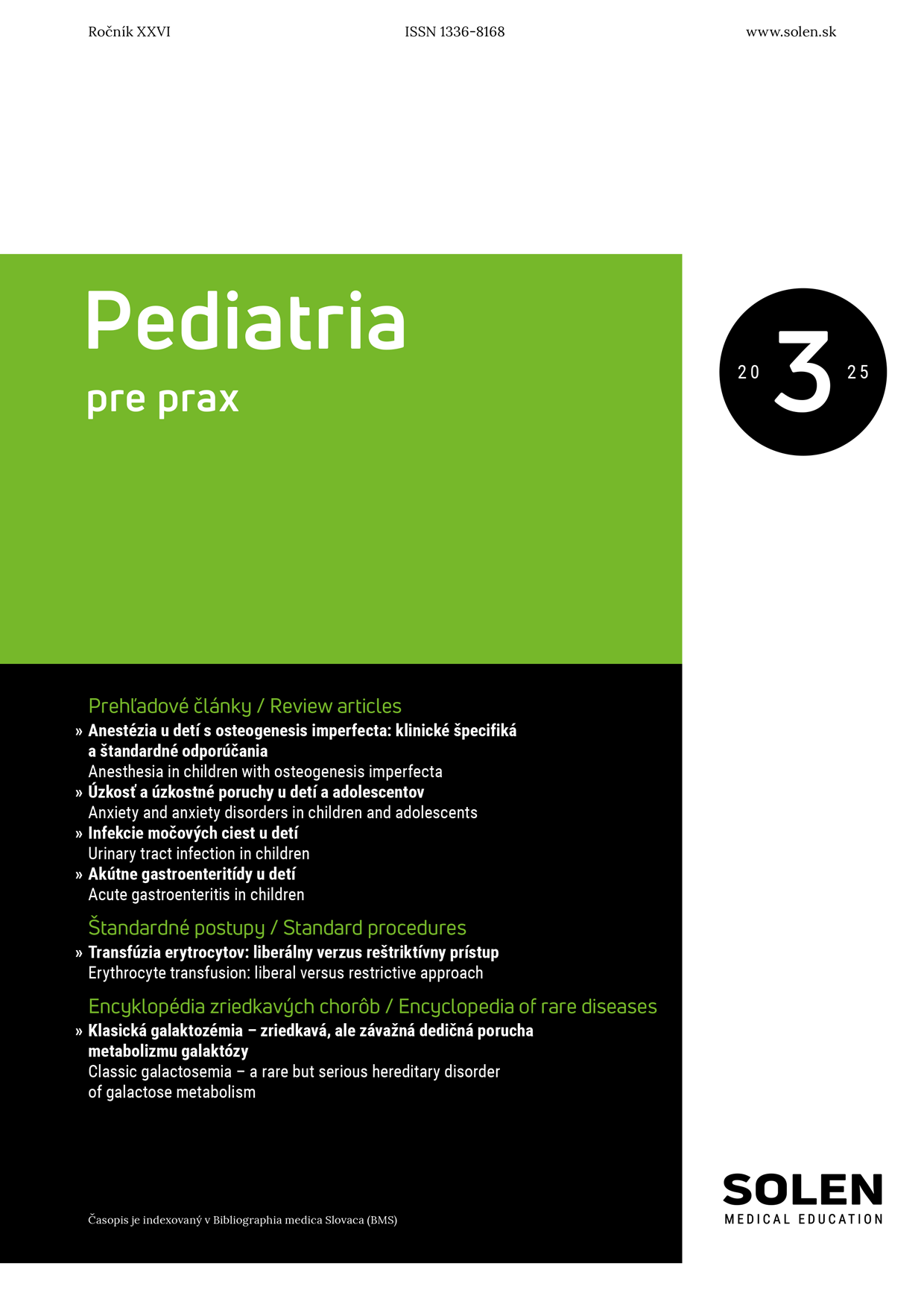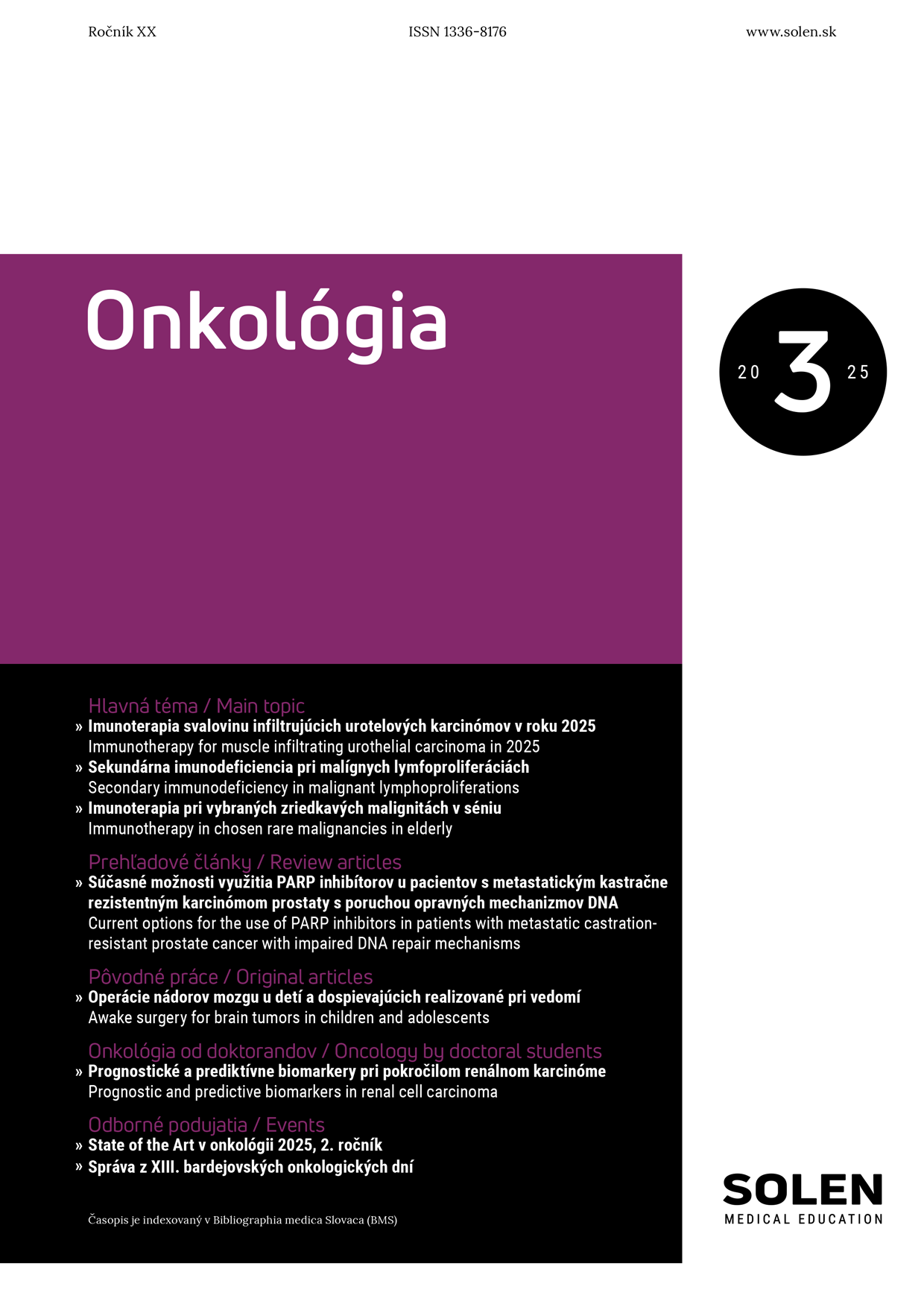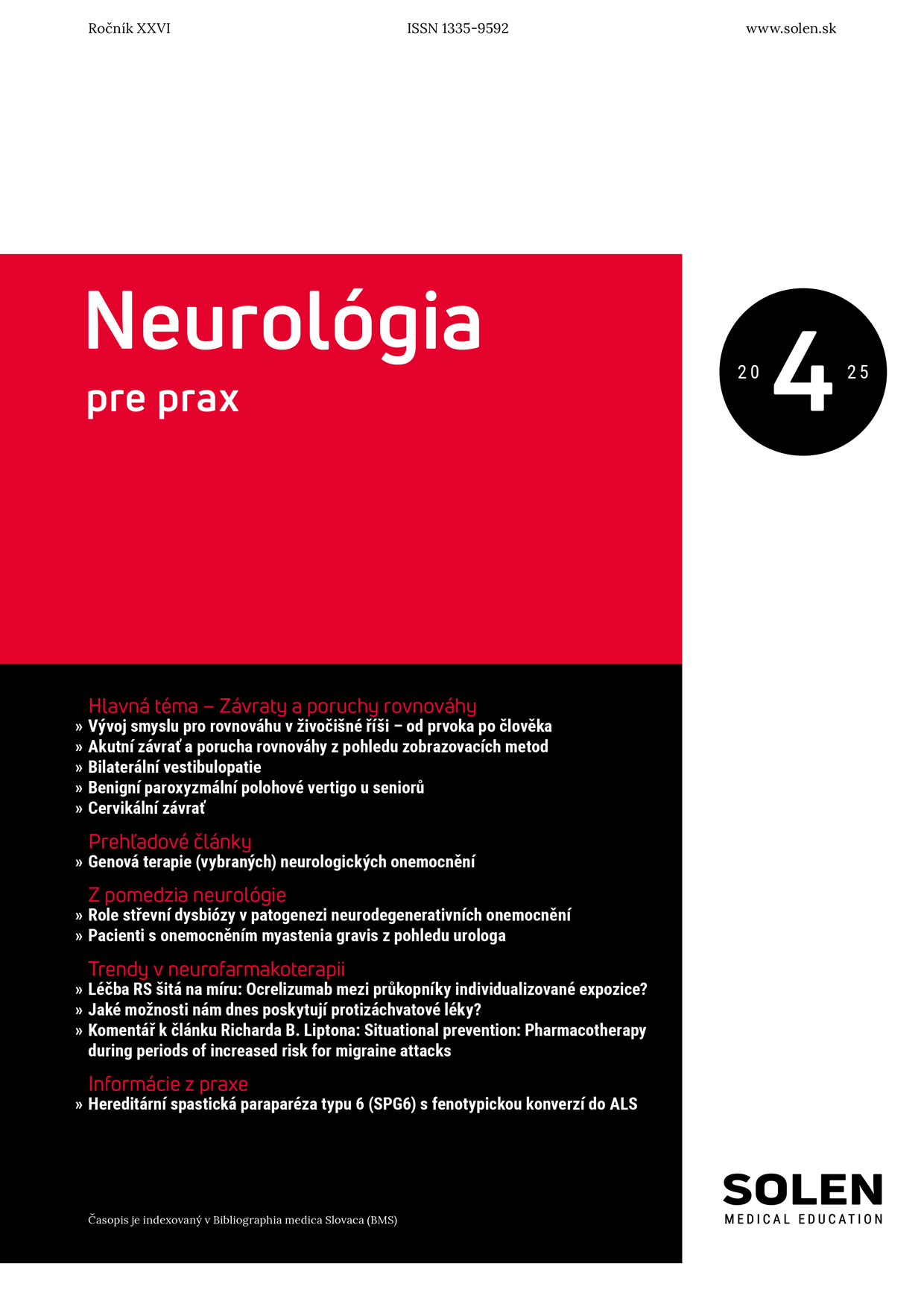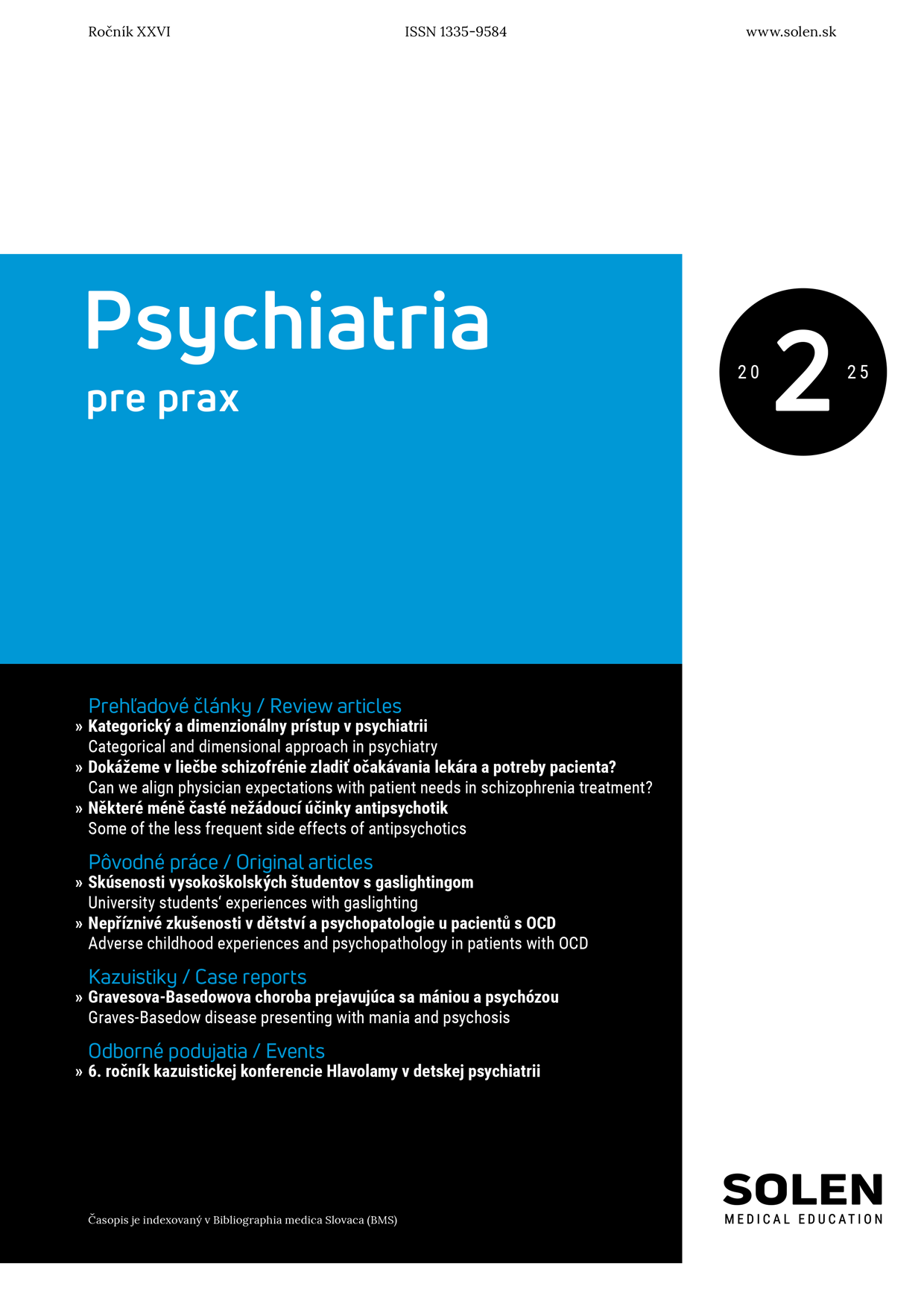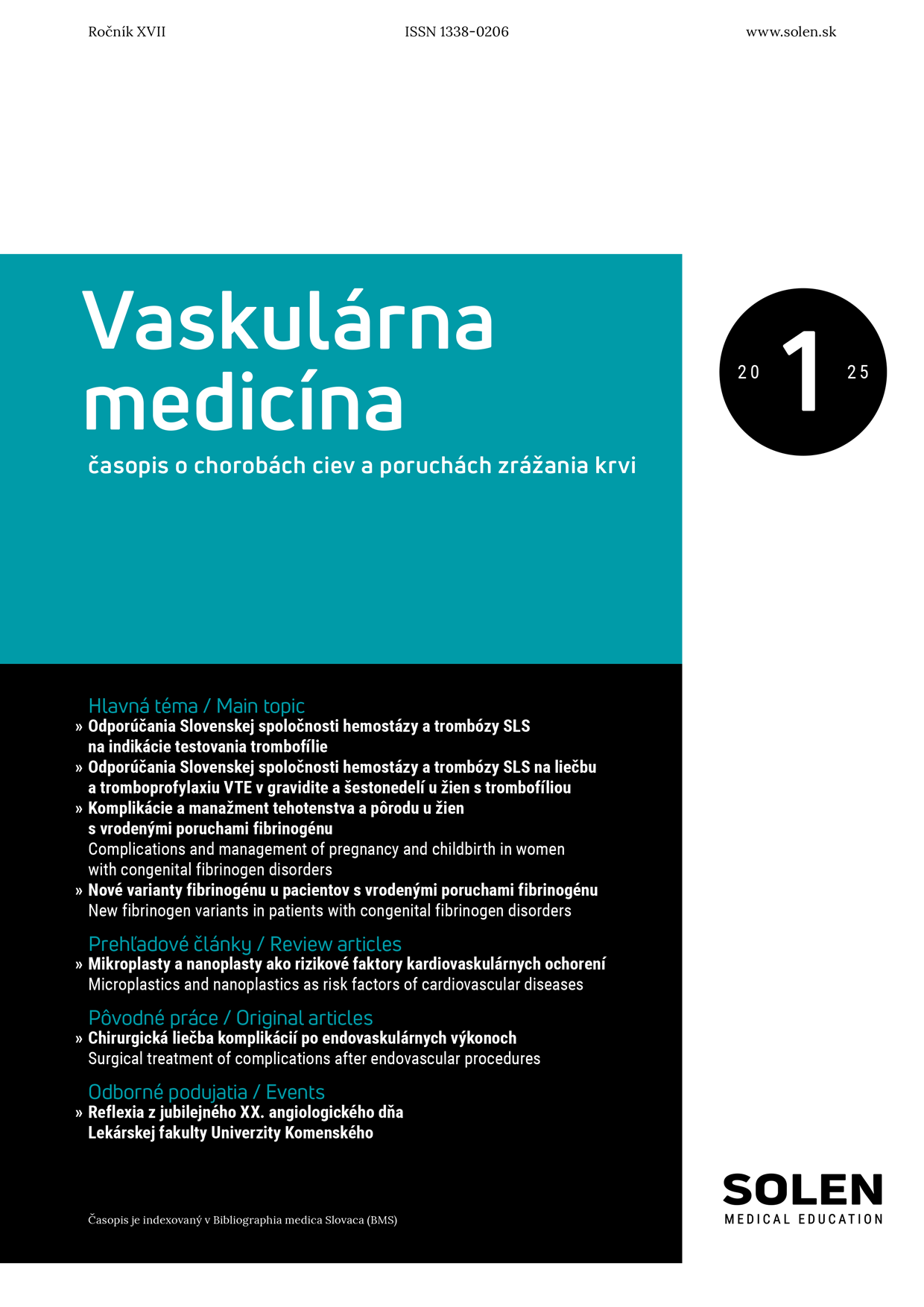Psychiatria pre prax 1/2021
Psychiatrické aspekty bariatrických operácií
Metabolicko-bariatrická chirurgia je relatívne nová, ale čoraz viac využívaná liečebná metóda morbídnej obezity, ktorá sa stala jedným z najzávažnejších a najrýchlejšie sa rozširujúcich ochorení v rozvinutých krajinách a predstavuje závažný medicínsky a socio-ekonomický problém. V posledných desaťročiach sa objavilo množstvo nových dôkazov poukazujúcich na prepojenie medzi rôznymi duševnými ochoreniami a obezitou, vrátane možných neurobiologických súvislostí. Bariatrická chirurgia je v súčasnosti najefektívnejšia metóda liečby obezity a jej komorbidít, nové dôkazy však poukazujú na to, že môže mať i negatívny dopad na duševné zdravie pacientov. Približne 40 % kandidátov na bariatrické operácie má aspoň jednu psychiatrickú diagnózu. Identifikácia týchto ochorení zvyšuje kvalitu predoperačného manažmentu pacienta a pomáha predpokladať hmotnostný úbytok a komplianciu pacienta po zákroku. Cieľom tohto článku je priblížiť rolu psychiatra v procese bariatrickej chirurgie. Vychádzame z poznatkov medzinárodných štúdií, vedeckých publikácií, kazuistík ako aj z vlastného pozorovania z praxe. Fakultná nemocnica Trnava patrí na Slovensku už niekoľko rokov medzi centrá zamerané na komplexnú liečbu morbídne obéznych pacientov, a preto sa problematika obezity a metabolicko-bariatrickej chirurgie stala každodennou súčasťou psychiatrickej praxe na našom psychiatrickom oddelení.
Kľúčové slová: obezita, bariatrická chirurgia, psychiatria, bariatria, rukávová gastrektómia
Psychiatric aspects of bariatric surgery
Metabolic bariatric surgery is a relatively new but increasingly more used treatment of morbid obesity, which has become one of the most serious and fastest growing illnesses in developed countries and represents a significant medical and socio-economic problem. In the last decades, plenty of evidence has come to light connecting a variety of mental disorders with obesity including possible neurobiological connections. Bariatric surgery is currently the most effective treatment method for morbid obesity and its comorbidities. However, new evidence suggests that in some patients it can also have a negative impact on their mental health. Approximately 40% of candidates for bariatric surgeries present with at least one psychiatric diagnosis. Identification of these disorders improves the quality of preoperative care and helps to predict the process of weight loss and the compliance of patients after the procedure. The aim of this article is to introduce the role of a psychiatrist in the process of bariatric surgery. We based this on the results of international studies, scientific publications, case studies as well as our own observations in practice. For years Fakultná nemocnica Trnava (University hospital) has been one of the facilities in Slovakia focused on the complex treatment of morbidly obese patients, and therefore the metabolic bariatric surgeries have become everyday part of psychiatric care in our psychiatric ward.
Keywords: obesity, bariatric surgery, psychiatry, bariatry, sleeve gastrectomy


